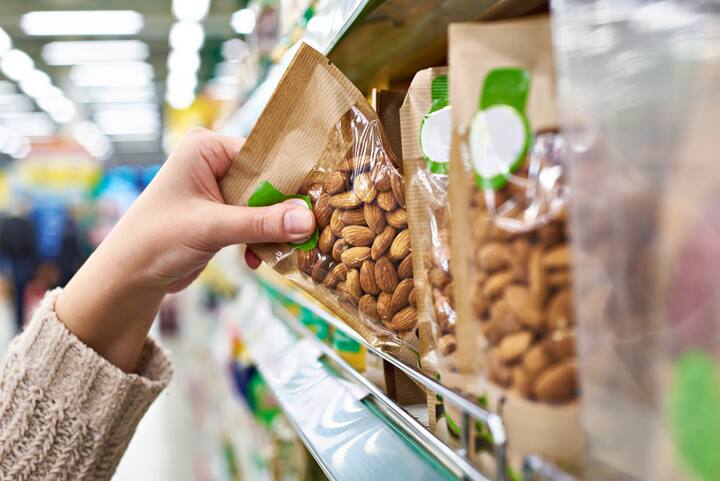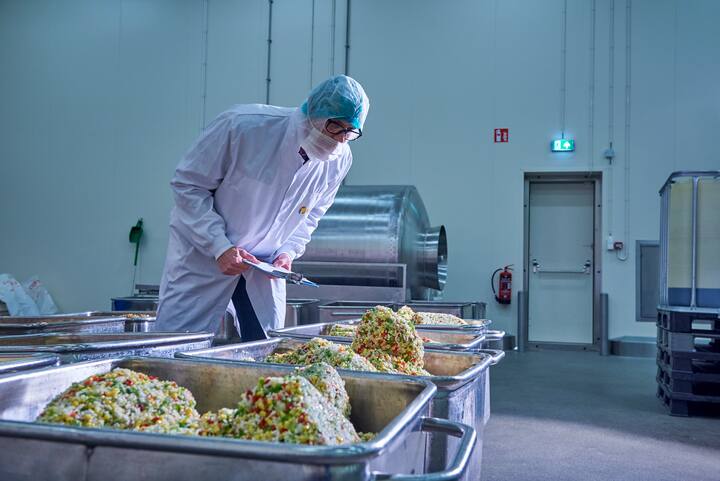
‘s-Hertogenbosch Netherlands
Whitepapers Foodcare

Would you prefer to receive monthly updates on all developments and news in the food industry via email?
Sign up for the newsletter

Listeria monocytogenes
Controlling Listeria in ready-to-eat foods is crucial. Beyond HACCP and hygiene, research focuses on contamination risks and growth under worst-case conditions. Discover nine control steps in our white paper.

BRCGS Packaging Materials versie 7
The final version of BRCGS Packaging Materials 7 was published on October 28, 2024. Audits according to BRCGS Packaging Materials 7 will take place from April 28, 2025. Read this paper to learn about the most important changes compared to version 6 and discover tips for complying with these new requirements.

Food Safety Culture
Food Safety Culture has been part of management expectations in the food industry since 2015. According to the GFSI, Food Safety Culture encompasses the shared values, beliefs and standards that influence the mindset and behaviour surrounding food safety throughout the organisation.

Sustainable water policy in the food industry
Sustainable water policy is vital in the food industry, where water is used from farming to processing. Wise use reduces environmental impact and improves business performance.

Allergen management
Allergen label errors are a leading cause of food recalls, often due to missing allergen information or incorrect product packaging.

IFS Logistics version 3
The final version of IFS Logistics 3 was published on 6 December 2023. Audits according to IFS Logistics version 3 can take place from 1 June 2024. Read this paper to find out about the most important changes compared to version 2.3 and see our tips on how to comply with these new requirements.

Packaging
With growing consumer awareness, companies must adopt eco-friendly packaging that protects products and supports a healthier planet. What should you consider when developing sustainable packaging, and which steps are key?

IFS Food version 8
IFS Food version 8 was published on 18 April 2023. Audits according to IFS Food version 8 can take place from 1 October 2023 and are mandatory for all certified companies as of 1 January 2024. Our experts have outlined the most important changes for you in the free white paper IFS 8.

FSSC 22000
The new FSSC 22000 standard version 6.0 was published on 31 March 2023. Audits according to the previous version (5.1) of the standard can still take place until 31 March 2024. From 1 April 2024, all audits must be carried out in accordance with version 6.0 of the FSSC 22000 standard. Our experts have outlined the most important changes for you in the free white paper FSSC 22000.

Validation and verification
An up-to-date quality system is essential for producing good, safe food and meeting customer expectations. But how do you know if your company's quality system is up to date? The answer to this question seems simple: by performing validations and verifications. Unfortunately, these are commonly used terms that regularly raise questions in practice. It is high time to clarify matters.

BRCGS 9 Food Safety
The new BRCGS Global Standard Food Safety version 9 was published on 1 August 2022. Audits according to BRCGS version 9 will take place from 1 February 2023. Our experts have outlined the most important changes for you in the free white paper BRCGS 9.

Chain assurance
Crises like COVID-19, the war in Ukraine, and climate change drive shortages and rising raw material prices. While cost-efficient purchasing is vital, food companies must prioritise safe sourcing to avoid health risks, fraud, recalls, and severe consequences such as costs, reputational damage, or factory closures.

Product development in Food
Product development begins with an idea to meet new or changing needs. Food manufacturers’ flexibility drives market growth, but quality and food safety standards must always be met.

Salt and sugar reduction
The reasons for reducing salt and sugar in our food are very diverse. So are the possibilities. They are added precisely to appeal to consumers' taste buds (literally). After all, if something doesn't taste good, it won't be bought. Not even with a nice story. But how important is “taste” in the food sector? And why is salt and sugar reduction here to stay?